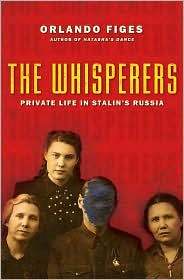My diaries began pretty innocuously. At age 14, I kept track of Chicago White Sox baseball scores, television programs I liked, favorite Top 40 songs, interesting classes at school, my progress in saving money for a tape recorder. The year being 1968, however, national events soon intruded: the assassination of Martin Luther King, the assassination of Bobby Kennedy, the suppression of the Prague Spring, and the police riot in nearby downtown Chicago at the Democratic Convention. My support for Lyndon Johnson's policies in Viet Nam were also clear from my 1968 diary entries. Closer to home, the 1968 volume recorded the first time my sister Ellen ran away from home.
As I got older, I realized that one of the purposes of my diary was to cheat the passage of time. I felt that if I recorded just a little bit--perhaps only a reminder, a marker of some kind--from each day, that day would somehow not disappear into the oblivion of forgetfulness. Even a reference to a movie or some other unimportant event would preserve a precious souvenir of that date. It's a fantasy, of course--I will probably never again read most of those 14,000-plus pages, and neither will anyone else--but it continues to be a powerful motivator. And more than once it's been very useful to pin down when some important event really happened.
That temporal-souvenir function of my diary is more important than its record of my thoughts and opinions. I rarely write long essays in there; my viewpoints and commentaries are more implied than explained. I can trace some of my spiritual development in my diaries, but only because the entries jog my memory about what I was reading, hearing, and believing, and the people who were influencing me, not because I was recording detailed reflections. The reflections (when I was industrious enough to record them at all) are in the form of letters, articles, and sermons, some of which ought never to see the light of day again.
I've been thinking about my diary because of an amazing book I'm reading these days, The Whisperers: Private Life in Stalin's Russia
Behaviour in Moscow: one cannot speak of anything or with anyone. The whole secret of behaviour is to sense what something means, and who means it, without saying anything. You have to eliminate completely in yourself any remnant of the need to "speak from the heart."And in October:
The huge mass of the lower class simply goes about its work and whispers quietly. Some have nothing to whisper about: for them "everything is as it ought to be." Others whisper to themselves in solitude, retreating quietly into their work. Many have learned to keep completely silent ... --as if lying in a grave.Multiply these testimonies (and the effect on the reader) by hundreds, and you can understand the incredible power of Orlando Figes's work, delivered with his careful scholarship and quiet style. And you can see why I'm not tempted to make any kind of boasts about my own diaries.
 |
| artist: Alexander Poroshin |
These days it seems fashionable for commentators on Russia to affect a cynical tone suitable for describing the ruthless and amoral power blocs they claim to discern behind the scenes of Russian politics. The horrors described by Orlando Figes in epic scale and in systematic, persistent cruelty exceed anything in these glib analyses. But the incredible power of the spirit, of love, of hope, and the affection of the author for the human beings he describes, and their ravaged nation(s)--all the more credible for its unsentimental application--made the bigger impression on me.
Just a few more hours, and Northwest Yearly Meeting's pastors' conference for 2007, here at Twin Rocks Friends Camp, will be over. Speakers Irv Brendlinger and Bob Hyatt have (separately but in a marvelously complementary way) challenged us to base our ministry on the true purpose and mission of the church: to reflect God's glory, to serve people's needs. They've used words and phrases that might well be little engines pulling Friends meetings and churches closer to the creative ferment enlivening the larger Christian movement: community, authenticity, incarnation--to which I'd add, perhaps unnecessarily: God's promises. Several Friends have been quoting with approval Bob Hyatt's words, "Jesus did not die to make you a sanctified consumer. He died to make you alive to God and to the needs of the world." And "What we win people with is what we win people to." Referring to 1 Peter 2:10-12: "Will the pagans [in NIV; NASB says "Gentiles"] glorify God if they see we don't understand them or even like them?"
Righteous links:
The New York Times has published an interesting and problematic article on the ascendancy of the Russian Orthodox Church and its mutually reinforcing relationship with the Russian government. I'm afraid that many people will read the article alone, but the comments add important data and nuances. The article, its lack of context, and its seemingly tendentious tone, might, unfortunately, cast even more suspicion on non-Orthodox Christians in Russia, already too often suspected of serving Western interests, rather than wholeheartedly desiring to bless Russia.
Cherice's reflections on the film Black Robe. PS: Here at Twin Rocks, we just sang a chorus that is immediately applicable: "Let the world see I have nothing ... I am nothing without You." Let the world see that I am NOT backed by coercive imperialist forces or my country's money, technology, and superficial vulgarity.
Thanks to a review in Books and Culture, a Norwegian novel is added to my to-read list.
"Hamas is a significant force among Palestinians, and will continue to be such, for better or worse, in the foreseeable future." An open letter from Israeli peace workers to Jimmy Carter.
A Jesus for real men. (A supplement *smile* to my own "Evangelical machismo.")
Martin Marty: If Islam had never existed....
Today's the day: Ubuntu Linux 8.04 goes into general distribution. My use of Windows XP and Vista has already gone to near-zero; I've been working with 8.04 beta for several weeks; aside from the frequent updates (most of which seem to be to fix problems I never noticed), it has seemed very much like a finished product to me.
I'm delighted to see that there's a Linux users' group meeting at River of Life Friends Church in Idaho. There's something about Linux and the Ubuntu philosophy that seems very congenial to Friends. And it was River of Life pastor Mike Slothower who finally convinced me, so to speak.
The Iceman, Albert Collins, on Austin City Limits (1991):


No comments:
Post a Comment